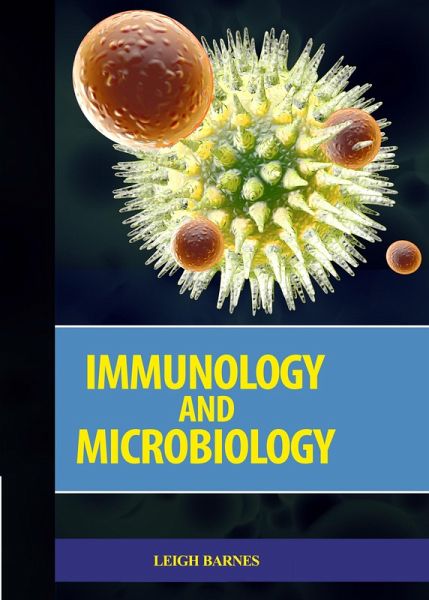
Immunology and Microbiology (eBook, ePUB)

PAYBACK Punkte
70 °P sammeln!
Immunology is the study of our protection from foreign macromolecules or invading organisms and our responses to them. These invaders include viruses, bacteria, protozoa or even larger parasites. In addition, we develop immune responses against our own proteins in autoimmunity and against our own aberrant cells in tumor immunity. The body is defended by innate immune responses, but these will only work to control pathogens that have certain molecular patterns or that induce interferons and other secreted yet non-specific defenses. They do not allow memory to form as they operate by receptors t...
Immunology is the study of our protection from foreign macromolecules or invading organisms and our responses to them. These invaders include viruses, bacteria, protozoa or even larger parasites. In addition, we develop immune responses against our own proteins in autoimmunity and against our own aberrant cells in tumor immunity. The body is defended by innate immune responses, but these will only work to control pathogens that have certain molecular patterns or that induce interferons and other secreted yet non-specific defenses. They do not allow memory to form as they operate by receptors that are coded in the genome. Microbiology is the study of microorganisms that is the organisms which are of microscopic dimensions. These organisms are too small to be clearly perceived by the unaided human eye. If an object has a diameter of less than 0.1 mm, the eye can not perceive it at all and very little detail can be perceived in an object with a diameter of 1 mm. Microorganisms benefit society by cycling inorganic and organic matter into molecules needed for life and detoxifying discarded wastes. Historically, they have served as microscopic factories for the production of cheeses, alcohol and antibiotics. Microorganisms have also been engineered to produce a wide variety of products for our benefit through the emergence of biotechnology. Microorganisms have, however, also inflicted great distress to human, animal and plant populations through disease, spoilage of crops, foods and the fouling and degradation of man-made structures. The main aim of this book is to understand and interpret the major current topics in the field of immunology and microbiology.
Dieser Download kann aus rechtlichen Gründen nur mit Rechnungsadresse in A, B, BG, CY, CZ, D, DK, EW, E, FIN, F, GR, HR, H, IRL, I, LT, L, LR, M, NL, PL, P, R, S, SLO, SK ausgeliefert werden.



